The Women Helping to Rebuild Ukraine
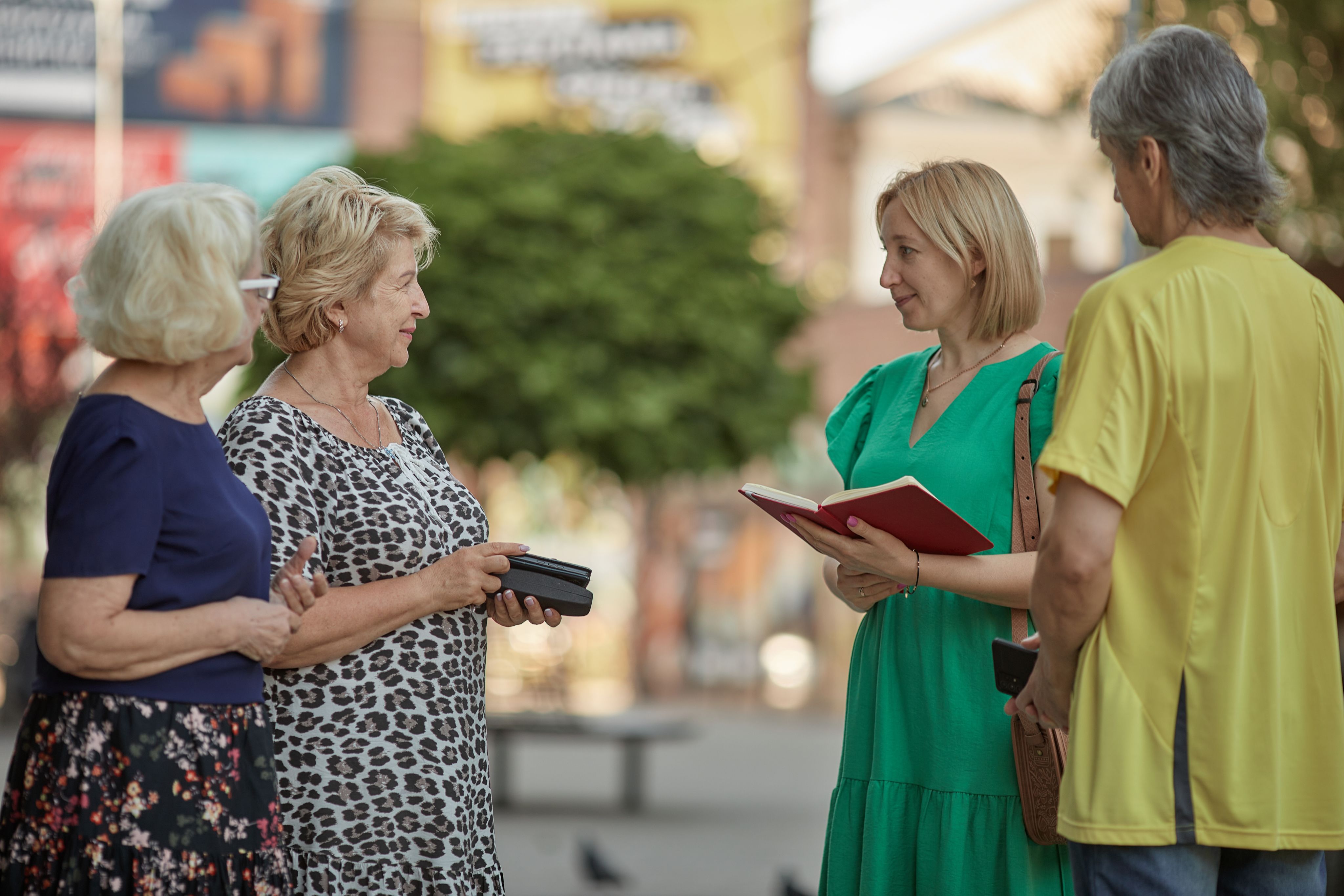
Photo by Andrii Shostak/IFC
Photo by Andrii Shostak/IFC
Photo by Andrii Shostak/IFC
Photo by Andrii Shostak/IFC
For Tetiana Shyk, as for millions of internally displaced Ukrainians forced to leave their homes because of Russia’s invasion, starting over in a new city has not been easy.
In her hometown of Bakhmut in eastern Ukraine, the softly-spoken Tetiana managed nine homeowner associations (HOAs)—loose collectives of residents who band together to maintain and improve their buildings and communal spaces, often through funding from local and regional governments.
By summer 2022, however, Bakhmut had become a battleground. Tetiana and her family were forced to evacuate to Pavlohrad, an industrial hub near the central city of Dnipro.
For months, Tetiana and her husband travelled back and forth to Bakhmut—a perilous four-hour car journey—to deliver aid and help her former co-residents.
When the couple’s car took a direct hit, however, they realized they had to stay put. For almost a year, Tetiana dreamed of returning to her hometown but by May 2023, it had been entirely destroyed.
In the end, it was a training program developed with IFC’s help—the School of Women's Leadership—that gave her the confidence and determination to adapt to the new environment.
The school was set up to empower women leaders—heads of homeowner associations and NGO partners—in implementing IFC’s recommendations for resettling and integrating internally displaced persons (IDPs) into new communities. Additionally, it focuses on adapting housing management practices to the unique challenges posed by martial law, ensuring leaders are equipped to foster resilience and support within their communities.
“It made me realize that women like me in multifamily building management are leaders,” says Tetiana. “I thought: I am a woman and in management - what am I waiting for?”
Not long after, with the backing of her co-residents, she set up a new homeowners’ association for her building in Pavlohrad, where she is now once again advocating for repairs and improvements.
“This building sheltered my family when we left Bakhmut and I feel a strong connection with it,” she says. “The longer I stay, the dearer it becomes. We had instances of no light and clogged sewers. As an HOA chair, I have a sharp eye and I’m fond of bringing things to order. With an HOA, we can do a lot of good things.”
Tetiana Shyk. Photo by Andrii Shostak/IFC
Tetiana Shyk. Photo by Andrii Shostak/IFC
Tetiana Shyk. Photo by Andrii Shostak/IFC
Tetiana Shyk. Photo by Andrii Shostak/IFC
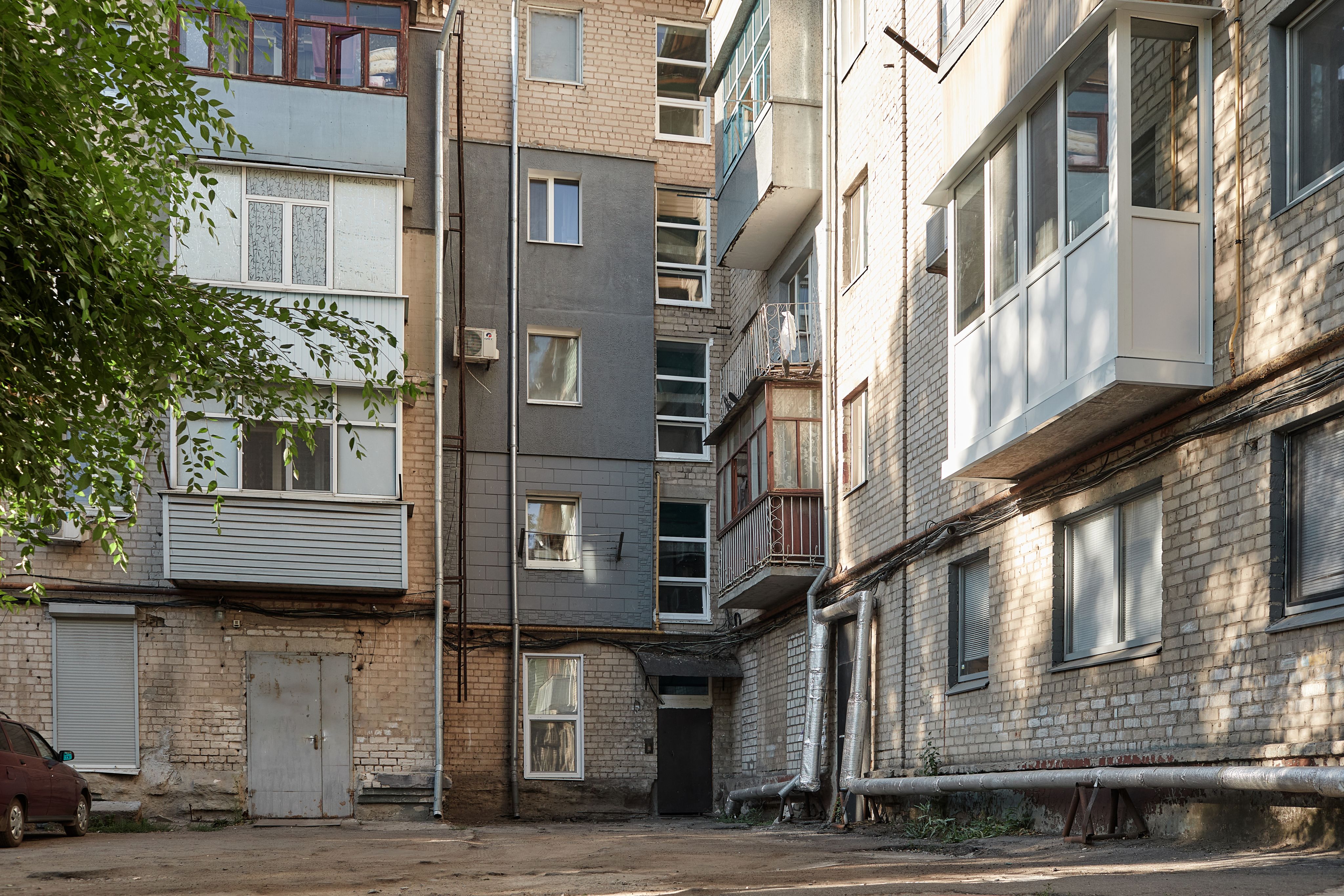
Fostering women housing leaders
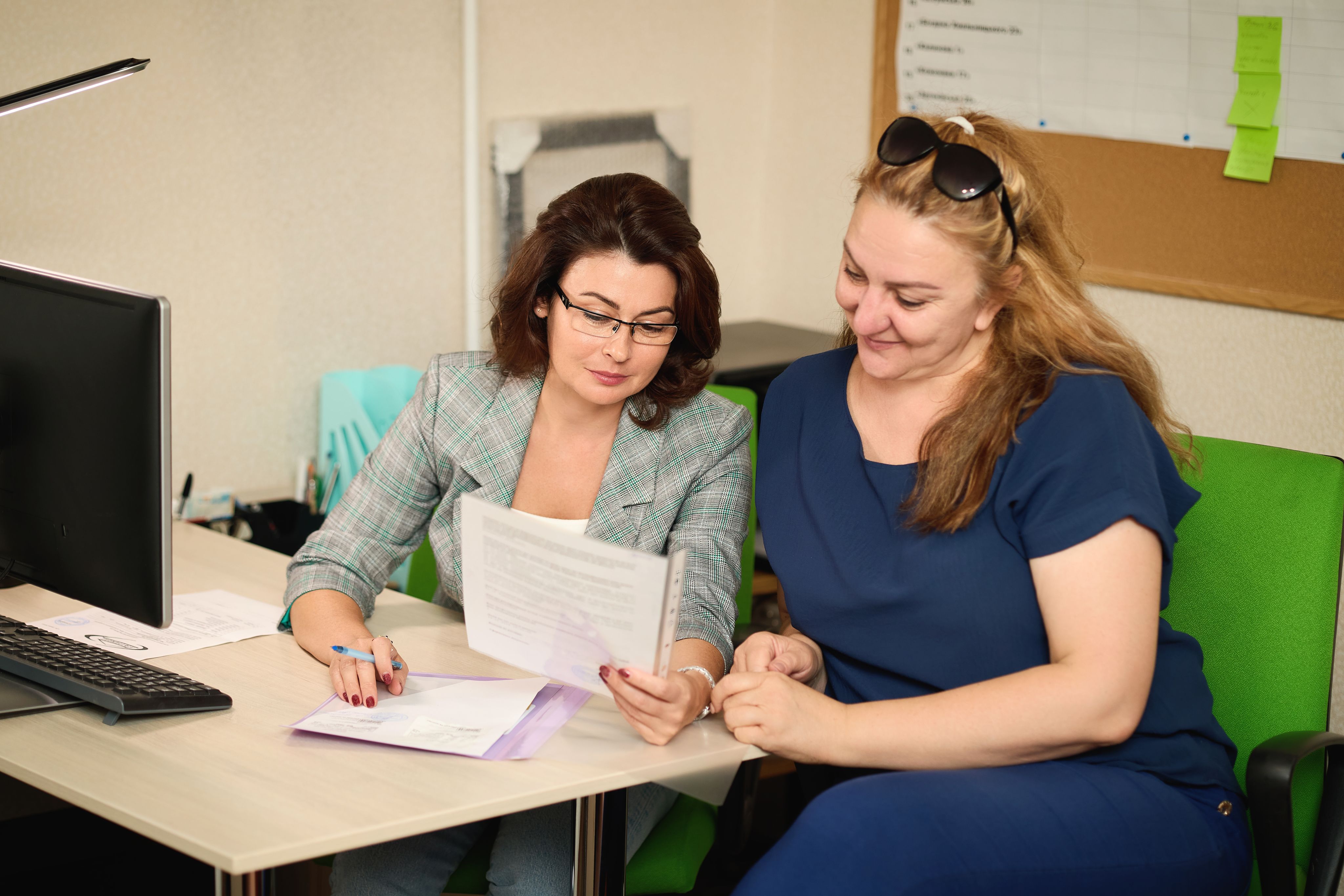
With so many Ukrainian men conscripted, women like Tetiana are playing an increasingly critical role in helping homeowners cope with the devastating impact of Russia’s invasion—with support from international partners like IFC and the European Union.
Prior to the invasion, IFC had supported Ukraine’s government in structuring and launching the Energy Efficiency Fund (EEF) to help homeowners’ associations co-finance much needed energy efficiency improvements. The €200 million grant program delivered by the EEF was funded by the Ukrainian government, the EU, and Germany, with donors' contributions administered by IFC.
To ensure HOA heads and housing managers could access the fund, IFC provided advisory services and training through a network of on-the-ground consultants and a nationwide awareness campaign, with a focus on empowering women managers.
Photo by Natalia Ilina/IFC
Photo by Natalia Ilina/IFC
Following the invasion, IFC has added a crisis response component into the program, to help housing leaders adapt to the country’s new reality.
Mai Nguyen. Photo by IFC
Mai Nguyen. Photo by IFC
“In essence, we’ve adjusted the program’s funding to meet homeowners’ most urgent needs. That is no longer energy-efficient refurbishments but quick building restorations, so people can live in their homes, as well as initiatives like the School of Women's Leadership.”
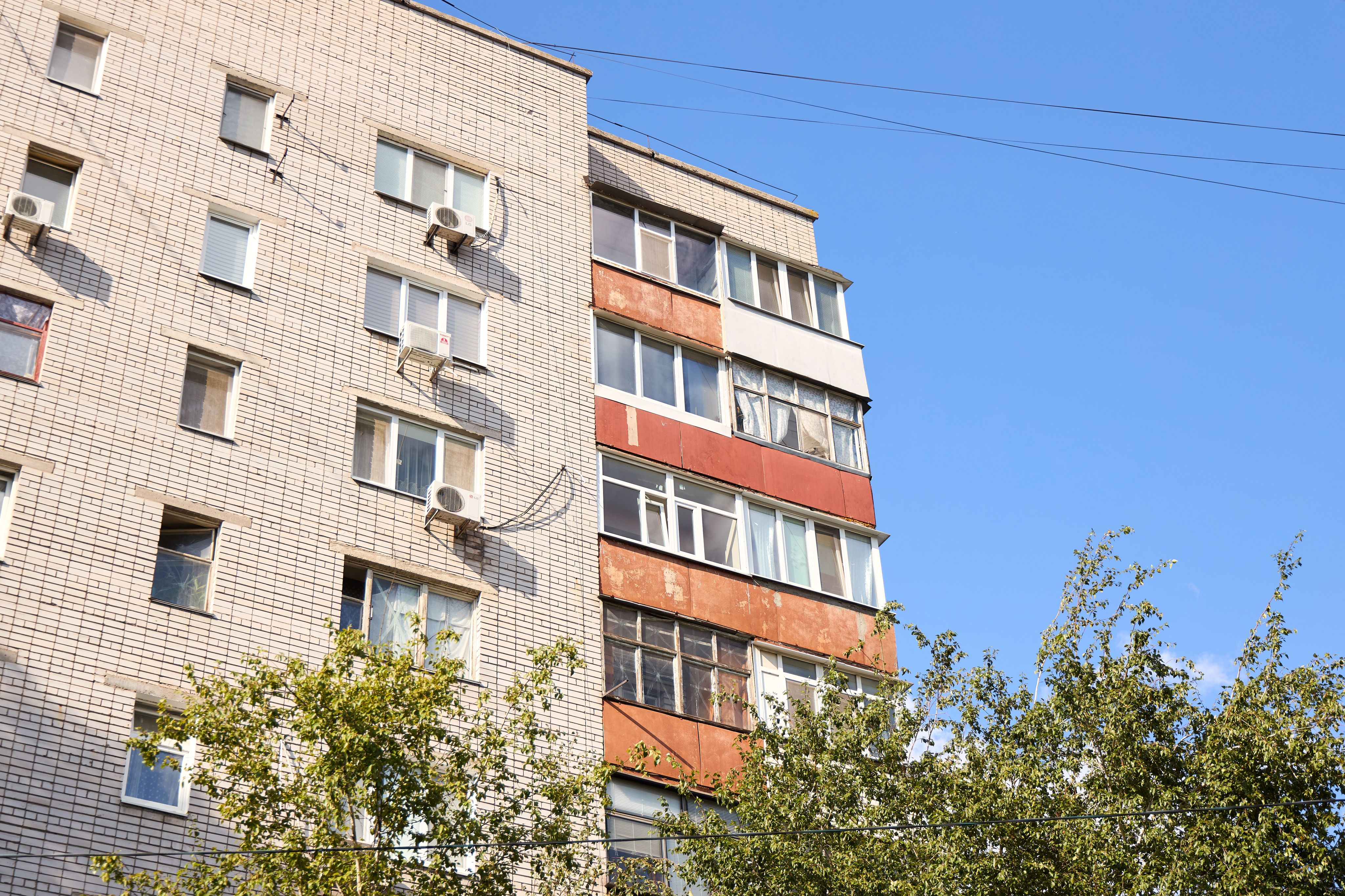
IFC worked with Hannah Prokypets, who founded Ukraine’s first Association of Women House Managers four years ago, to set up the school.
“My aim was to build a nationwide network of women leaders. By enhancing their crisis management skills and fostering a network of support, we can demonstrate resilience in the face of adversity.”
Photo by Andrii Shostak/IFC
Photo by Andrii Shostak/IFC
Through online training sessions, workshops, seminars, and consultations, the school provides women housing managers with legal, financial and psychological support to help them lead and manage their buildings.
Hannah Prokypets. Photo by Andrii Shostak/IFC
Hannah Prokypets. Photo by Andrii Shostak/IFC
Hannah Prokypets. Photo by Andrii Shostak/IFC
Hannah Prokypets. Photo by Andrii Shostak/IFC
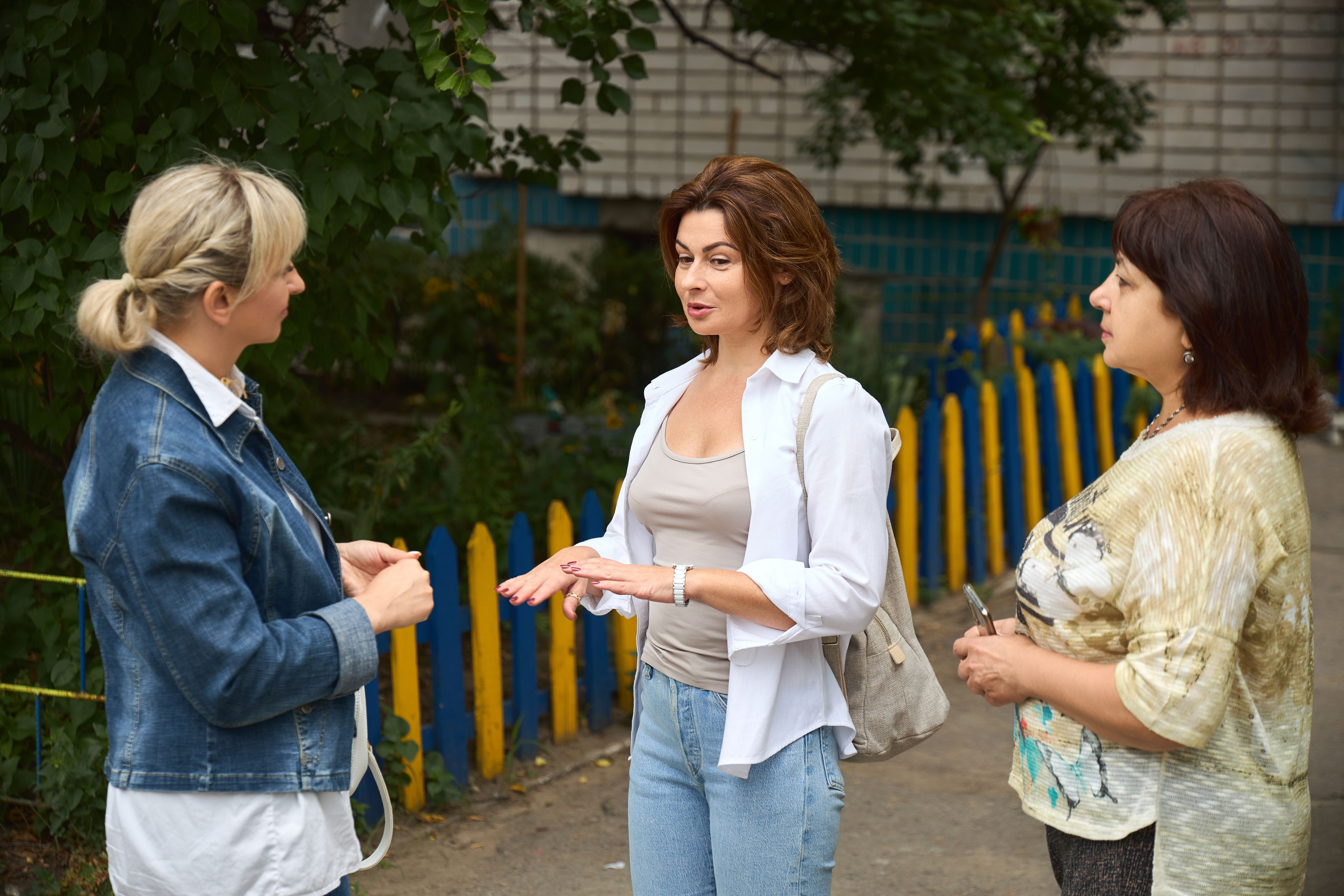
Marharyta Fedorovych, a former actor-turned-prominent-HOA-head in the southern city of Mykolayiv, is one of many who have benefited from the training. The chair of three historic building associations in her home city, she says Russia’s invasion had left her paralyzed with fear.
“The School of Women's Leadership helped me return to my previous state. It revived my desire not to stop, to continue to set goals, to achieve. I felt I could do something to rebuild the country. By being with a community of like-minded people, I felt involved in positive changes,” she says.
Photo by Andrii Shostak/IFC
Photo by Andrii Shostak/IFC
“We are now focused on repairing the damage that our homes suffered from Russia’s invasion of Ukraine. We still have a lot of work to do, but we are unanimously confident that we can handle everything.”
Marharyta Fedorovych. Photo by Andrii Shostak/IFC
Marharyta Fedorovych. Photo by Andrii Shostak/IFC
Marharyta Fedorovych. Photo by Andrii Shostak/IFC
Marharyta Fedorovych. Photo by Andrii Shostak/IFC
Restoring homes and providing shelter for IDPs
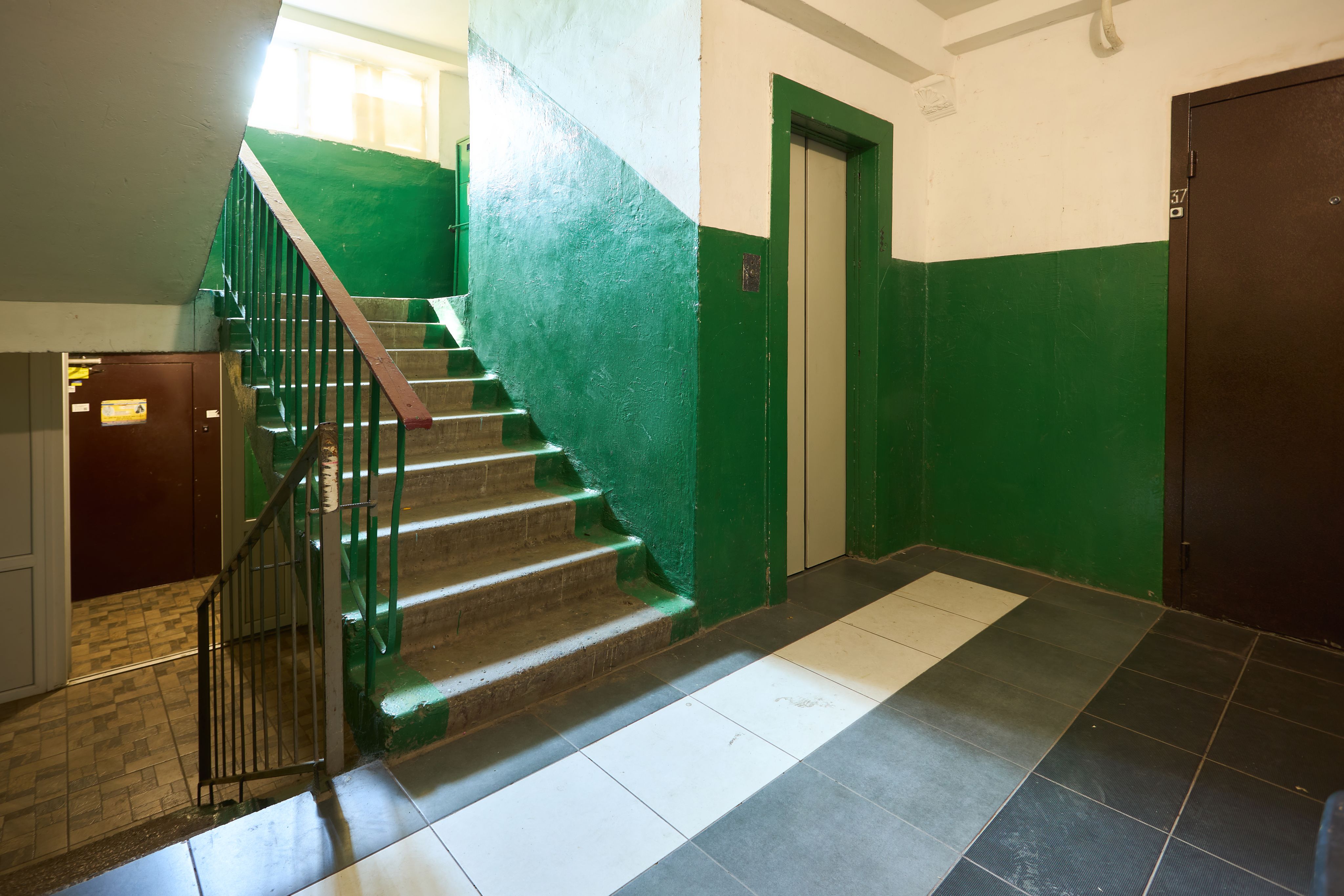
Russia’s invasion has resulted in the massive destruction of civilian infrastructure and damaged thousands of buildings, creating an exodus of refugees and internally displaced people.
IFC’s Energy Efficiency and Crisis Response program aims to address the housing sector’s most urgent needs—including restoring residential buildings damaged by Russian missiles that need window and roof repairs, or entrance hall and basement refurbishments. Both Tetiana and Marharyta have applied to the program for repairs to the buildings they manage.
Thanks to more than €18.9 million provided in grants, over 330 buildings have been restored so far and 310 more are under construction, allowing more than 57,100 families to return and live in their own homes.
In addition, IFC’s program ensures direct grants to municipalities to refurbish municipal buildings for internal refugees, providing Ukrainians with access to medium and long-term shelter in restored and renovated multifamily and municipal buildings—and laying the groundwork for the rapid delivery of affordable housing post-invasion. The program is on its way to restoring over 700 buildings, providing shelter for over 130,000 people. Building upon the successful delivery of this crisis response program, the European Commission has just signed an agreement with IFC to top it up with an additional €14 million.
In the meantime, the core work of the Energy Efficiency Fund is continuing, despite the invasion, to support energy-efficient renovations. The initial target of retrofitting 200 multifamily buildings has already been achieved and over 160 more are in progress.
IFC’s Nguyen says the School of Women's Leadership is playing a crucial role in all these efforts. “It’s helping to strengthen the fabric of Ukrainian communities, and ensure they are better prepared to face challenges and rebuild in the aftermath of conflict.
“By focusing on innovative safety measures, community leadership, and inclusivity, women leaders are addressing the immediate challenges posed by Russia's invasion and building the foundation for sustainable recovery and unity.”
“Now I feel empowered to act,” says Tetiana. “I am so full of energy that I feel I must keep going, despite the war. Amid the continued destruction, I want to prove that doing positive things is possible.”
Similar Stories
Rebuilding Ukraine
Leaders gathered in Berlin this week to discuss Ukraine’s reconstruction and explore how private sector support can help the country's recovery.
“Restoration Is Part of Our Resistance”
How Ukraine is Bringing Irpin Back to Life
A New Horizon
Despite Russia’s Invasion of Ukraine, the Country’s Tech Sector Is Thriving






























